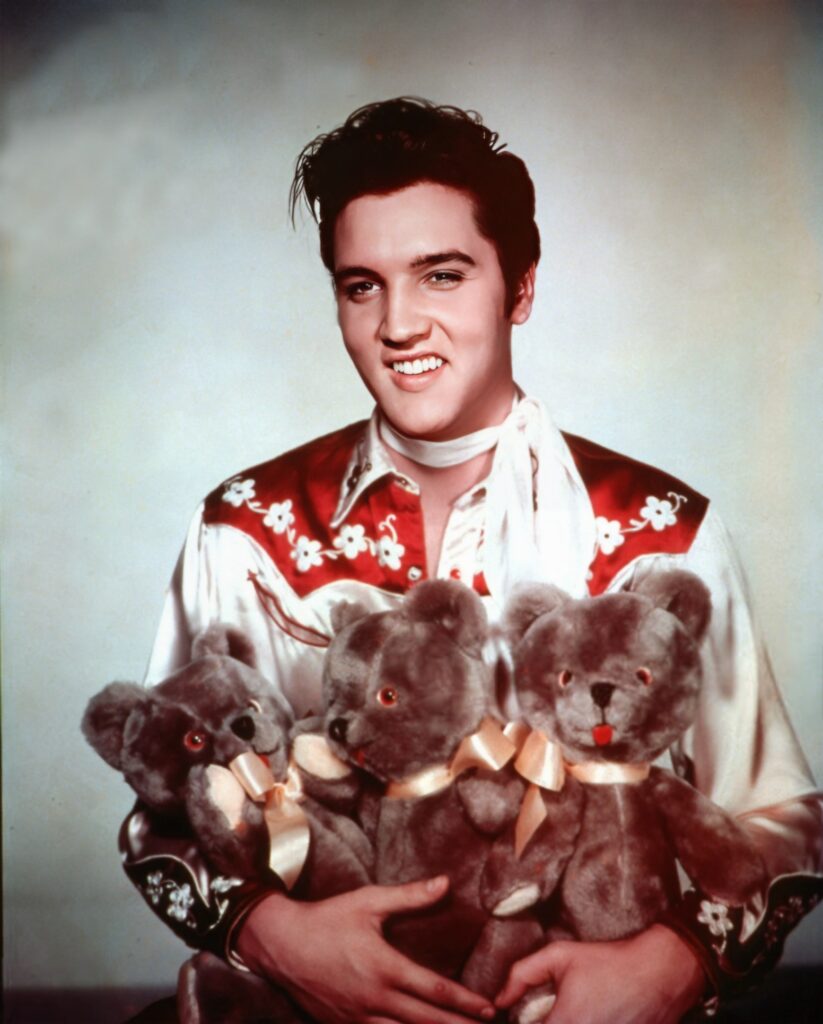
About the Song
(Let Me Be Your) Teddy Bear is a beloved 1957 song by the King of Rock and Roll, Elvis Presley. It was released as part of the soundtrack for his second film, Loving You. The song quickly became a hit, reaching number one on the Billboard Hot 100 chart and staying there for four weeks. It has since become one of Presley’s most popular and enduring songs.
(Let Me Be Your) Teddy Bear is a sweet and playful song about a man who wants to be his girlfriend’s teddy bear. He sings that he doesn’t want to be a tiger or a lion, because they are too rough. He just wants to be her teddy bear, so that she can cuddle him and love him.
The song is sung in Presley’s signature style, with his smooth vocals and infectious energy. The lyrics are simple and straightforward, but they are also heartfelt and sincere. The song’s catchy melody and Presley’s charismatic performance make it a timeless classic that continues to be enjoyed by fans of all ages.
(Let Me Be Your) Teddy Bear has been covered by many artists, including Paul McCartney, Dolly Parton, and Neil Diamond. It has also been featured in numerous films and television shows. The song is a reminder of Presley’s enduring popularity and his ability to connect with audiences on an emotional level.
Why is (Let Me Be Your) Teddy Bear so popular?
There are many reasons why (Let Me Be Your) Teddy Bear is such a popular song. Here are a few of them:
- The song is catchy and upbeat, with a melody that is easy to remember and sing along to.
- Presley’s vocals are smooth and charismatic, and his delivery is full of heart.
- The lyrics are simple and straightforward, but they are also heartfelt and sincere.
- The song is a reminder of a simpler time, when teddy bears were symbols of love and security.
(Let Me Be Your) Teddy Bear is a timeless classic that continues to be enjoyed by fans of all ages. It is a song about love, security, and the power of a teddy bear to bring comfort and joy.

